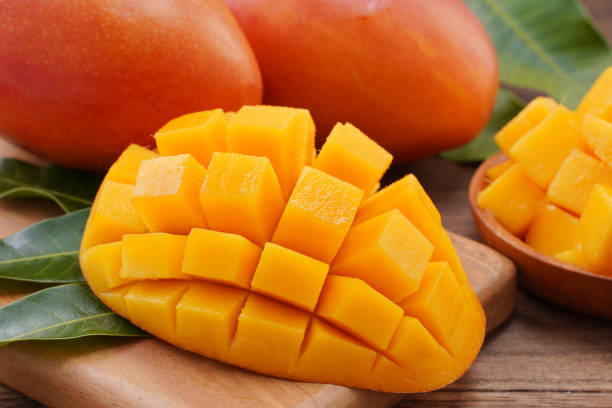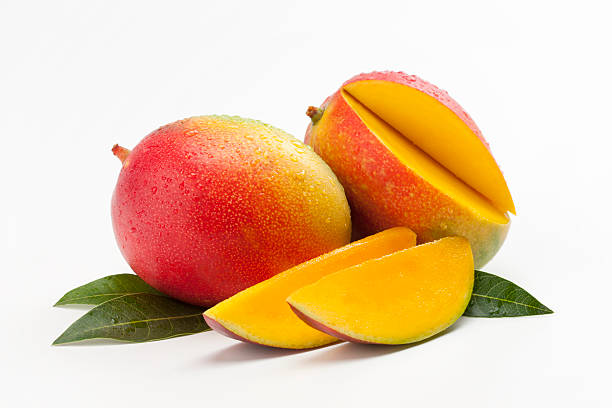Why Mango Is Called the King of Fruits
Mango, botanically known as Mangifera indica, holds a prestigious place not just in Indian culture but across the tropical world. It’s not only the rich, sweet, juicy taste that earns mango its royal status — it’s the incredible nutritional benefits, versatility in cuisines, and its strong connection to history and tradition.
In India, mangoes are a symbol of prosperity and happiness. They are used in religious ceremonies, offered during festivals, and even given as tokens of goodwill. Ancient Ayurveda recognizes mango as a rejuvenating fruit, beneficial for digestion and overall vitality.
Beyond taste, the vibrant color, rich aroma, and smooth texture of mangoes make them a true sensory delight — no wonder it’s called the “King of Fruits.”
Global Cultural Importance of Mangoes
Mangoes are not only native to India, but celebrated worldwide:
- India: Mangoes are deeply rooted in cultural rituals and ancient Ayurvedic practices. It’s considered sacred in many regions, offered in temples and served during special occasions.
- Thailand: Mango sticky rice (Khao Niew Mamuang) is a national delicacy. Mangoes are honored during the annual “Mango Festival” promoting local agriculture and tourism.
- Mexico: Home to the Todos Santos Mango Festival, mangoes here are used in spicy salsas and tangy dishes like ceviche, showcasing their culinary flexibility.
- African Countries: Mango is used in traditional medicine for its anti-inflammatory and digestive benefits. In some regions, it’s consumed to ease stomach discomfort and aid healing.
These examples show how mango has achieved global admiration — not just for taste, but for its deep cultural and medicinal value.
Nutritional Profile of Mango (Per 100g)

Here’s what 100g of ripe mango provides
| Nutrient | Amount |
|---|---|
| Energy | 60 kcal |
| Water | 83.5g |
| Carbohydrates | 14.9g |
| Sugar | 13.7g |
| Fiber | 1.6g |
| Protein | 0.82g |
| Fat | 0.38g |
| Vitamin C | 36.4mg |
| Vitamin A | 54µg (1082 IU) |
| Potassium | 168mg |
| Folate | 43µg |
| Magnesium | 10mg |
| Antioxidants | Mangiferin, Quercetin, Astragalin |
This powerful blend supports everything from skin glow to immune strength.
Top 9 Proven Benefits of Eating Mangoes

1. Boosts Immunity Naturally
Mangoes are rich in Vitamin C and A — both crucial for strengthening the immune system. Vitamin C helps in fighting infections and Vitamin A maintains the integrity of skin and mucous membranes.
2. Improves Brain Function
Mangoes contain B-vitamins and glutamine acid that support memory, concentration, and brain alertness. Perfect for students and working professionals.
3. Supports Healthy Digestion
The fiber in mango aids bowel movement, while enzymes like amylase help break down complex carbs into digestible sugars, relieving constipation and bloating.
4. Heart-Friendly Fruit
High potassium and magnesium help control blood pressure, while fiber and antioxidants reduce cholesterol — making mangoes good for the heart.
5. Excellent for Eye Health
Rich in beta-carotene and Vitamin A, mangoes protect the retina, enhance night vision, and reduce the risk of age-related macular degeneration.
6. Glowing Skin & Anti-Aging
Loaded with antioxidants like mangiferin and Vitamin C, mangoes combat oxidative stress, promoting glowing skin and slowing signs of aging.
7. Helps Healthy Weight Gain
Being calorie-dense and rich in natural sugars, mangoes are great for underweight individuals who want to gain weight healthily and naturally.
8. Anti-Cancer Properties
Studies show mango polyphenols may reduce the risk of breast and colon cancer by protecting cells from DNA damage and inflammation.
9. Beneficial During Pregnancy
The folate, iron, and fiber in mangoes support fetal development, prevent anemia, and relieve digestive issues common during pregnancy
Precautions While Eating Mangoes
While delicious and healthy, mangoes should be consumed mindfully:
- Avoid Excess Quantity: Too much mango can spike blood sugar due to its high natural sugar content.
- Don’t Eat on an Empty Stomach: Can irritate sensitive stomachs.
- Avoid Eating at Night: It may cause heat in the body and disturb digestion.
- Always Wash Before Eating: To remove possible chemicals or pesticides.
- Avoid Artificially Ripened Mangoes: Choose naturally ripened, organic mangoes for safety.
- Not Recommended for Diabetics in Large Quantities
- Allergy Risk: Those allergic to urushiol (found in poison ivy) may react to mango skin.
- Be Cautious with Milk Combinations: Mango milkshake can be heavy to digest for some people.
(Conclusion) Why You Should Include Mango in Your Diet
Mango is not just a fruit — it’s a nutritional powerhouse, cultural icon, and a summertime essential. With its rich concentration of vitamins, antioxidants, and minerals, it supports immunity, heart health, digestion, eyesight, and even mental clarity.
Whether you enjoy it raw, in smoothies, or as chutney — mango brings both flavor and health. So this summer, give your body the royal treat it deserves!
Disclaimer
The tips and suggestions mentioned in this article are intended for general informational purposes only. Before starting any fitness program, making changes to your diet, or trying any remedies related to health conditions, please consult your doctor or a qualified healthcare professional. Dr. You does not verify or endorse the authenticity of any such claims made herein

